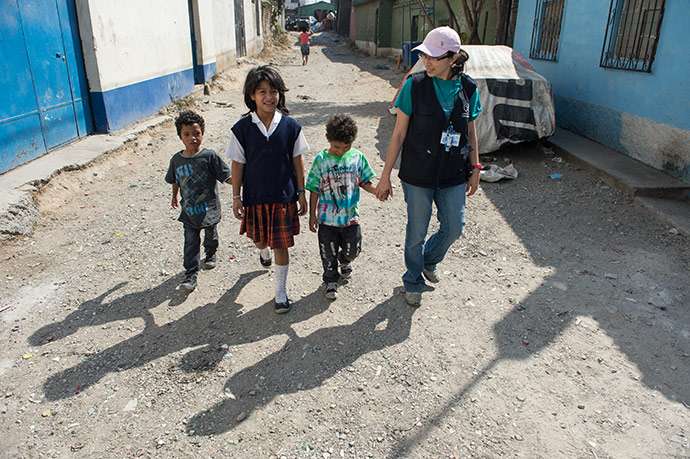
Ministry Updates
What is Community Development?
March 19, 2014
by Interactive Supply

“Development” is a word thrown around a lot these days: international development, economic development, community development, sustainable development, etc. Years ago, it was a concept often seen as separate from missions work, safely contained on one side of the wall that divided ministries of “word” and ministries of “deed.”
But today, the church is a lot more comfortable knocking down that wall and allowing those ministries to commingle into a more holistic approach. At TEAM, community development is one of our core ministry focus areas (we have 24 of them in total). Because this is a broad term that’s sometimes misapplied, it’s worth taking a look at what it means.
Generally speaking, community development is work done by professionals and laypeople to strengthen and improve communities. That’s a wide-open definition, and my guess is that even within TEAM there are more specific and varying definitions. Community development may look like an after-school tutoring program in an African town, an activism campaign in Latin America to improve a neglected city street, or a program in inner-city Chicago to connect immigrant families with appropriate social services. It has as many expressions as there are groups and individuals working toward creative solutions to a community’s problems.
There are some key ingredients, however, that set community development apart from other forms of development. A few of them are:
1) Good community development takes a long view. Since a community’s most pressing challenges are usually deep-rooted, they can’t be resolved overnight. Community development recognizes this and is structured to be sustained over the long term. It focuses on transforming individuals and systems, rather than seeking quick or superficial fixes.
2) Community development is community driven. Though “outsiders” participate in community development, it is with the goal of guiding individuals within the community itself to identify solutions and take ownership of them. Community development focuses on empowering local leaders, rather than imposing foreign solutions.
3) Community development is holistic. It does not settle for simplistic solutions to complex problems, or fall for one-size-fits-all approaches.
Most community development, especially within the Christian community, is incarnational. To truly understand a community and build the type of relationships essential for community transformation, there is just no substitute for dwelling long-term among that community. This is the heart of the philosophy of the Christian Community Development Association (CCDA), a leader in church-based community development.
In fact, because good community development is incarnational, the church is uniquely and simply the best vehicle for it. The CCDA puts it best on its website: “It is practically impossible to do effective holistic ministry apart from the local church. A nurturing community of faith can best provide the thrusts of evangelism, discipleship, spiritual accountability, and relationships by which disciples grow in their walk with God.”
There are other fields of international (and domestic) development work that TEAM does not dabble in — large-scale economic development, national policy, and sweeping microfinance projects, to name a few. These are vital parts of the big-picture strategy for fighting poverty and injustice, for sure, but most missions agencies simply aren’t structured for such activities.
As a global community of missionaries focused on church planting, what TEAM does best is grow Christ-centered communities of faith that transform their worlds with the gospel. And that is about as good a framework as there is for effective international community development.
Related articles


